<> Moduza procris (Cramer, 1777) <>
the Commander ผีเสื้อแถบขาวเรียงธรรมดา
Click on any photo to see all photos full size in Lightbox
Additions and corrections to the information provided on this page is always welcome. Please use the Contact form.
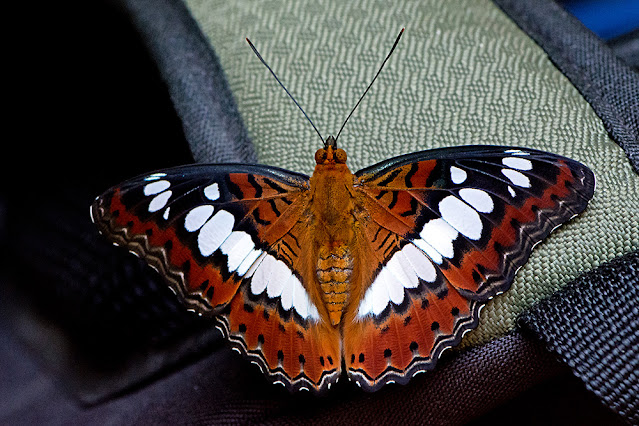
Photo taken at Doi Suthep-Pui National Park, Chiang Mai. Thailand. 700m a.s.l.

A beautiful and striking species that is widely distributed throughout the whole region with the exception of Taiwan. It can be locally quite common. The species is not sexually dimorphic and although the female is slightly larger, the sexes look the same. Both sexes feed on flowers but they are not prolific nectar feeders. Males also puddle on a range of other food sources which are listed below. The males are very territorial and actively drive away any butterflies that stray onto their patch.
The adults are strong fliers with a combination of rapid wingbeats and smooth gliding. They do however only fly for short distances before settling again. They are most often seen basking with wings spread on rocks near streams. The species is multivoltine producing several broods per annum. The larvae are rather bizarre-looking and are easily recognisable, covered in sharp spines or 'setae'; presumably to protect them from potential predators.
Synonyms and previously used names: Limenitis procris, Modusa neoprocris
Taxonomy: Animalia - Arthropoda - Insecta - Lepidoptera - Nymphalidae - Limenitidinae - Moduza - procris
Regional subspecies: M.p.milonia (S.Thailand, Malaysia, Singapore), M.p.minoe (Indonesia), M.p.neutra (Indonesia), M.p.pausanias (Philippines), M.p.procris (India, Nepal, Bhutan, Bangladesh, Myanmar, N.Thailand, Laos, Cambodia, Vietnam, S.China), M.p.undifragus (India), there are also several more subspecies distributed amongst the individual islands of Indonesia.
Regional Distribution: India, Nepal, Bhutan, Bangladesh, Myanmar, Thailand, Laos, Cambodia, Vietnam, China, Malaysia, Singapore, Indonesia, Philippines
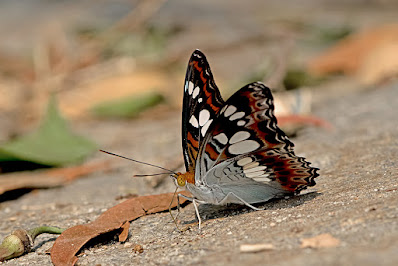 |
| Doi Suthep-Pui National Park, Chiang Mai, Thailand. 450m a.s.l. |
Habitat: Moduza procris is found in a wide range of habitats including evergreen and deciduous forest, agricultural land, urban parks and gardens; basically wherever their host plants are found and usually at low to moderate elevations not exceeding 1200m a.s.l.
Flight time: all year round, depending on location. Wingspan: 50-65mm
Life History: egg 3-4 days instar 1 3 days instar 2 3 days instar 3 3 days instar 4 4 days instar 5 6 days pupa 8-10 days Total egg to adult 29-33 days. All times are approximate.
Larval Hosts: Anthocephalus chinensis, Gaertnera vaginans, Hymenodictyon orixense, Mitragyna diversifolia, Mitragyna parvifolia, Mitragyna tubulosa, Morinda angustifolia, Morinda tomentosa, Mussaenda erythrophylla, Mussaenda frondosa, Mussaenda philippica, Mussaenda samana, Neolamarckia cadamba, Neolamarckia macrophylla, Neonauclea excelsa, Nauclea orientalis, Ochreinauclea missionis, Timonius flavescens, Timonius wallichianus, Uncaria canescens, Uncaria cordata, Uncaria elliptica, Uncaria hirsuta, Uncaria homomalla, Wendlandia bicuspidata, Wendlandia exserta, Wendlandia heynei, Wendlandia luzoniensis, Wendlandia notoniana, Wendlandia thyrsoidea (Rubiaceae), Grewia nervosa (Malvaceae), Prunus dulcis (Rosaceae), Cadaba fruticosa (Capparaceae), Tetrapilus brachiatus (Oleaceae). Actual host plant used depends upon location and availabilty of plant species.
Adult Food Sources: Nectar - Ziziphus mauritiana (Rhamnaceae), Ixora javanica (Rubiaceae), Chromolaena odorata, Tagetes erecta, Zinnia sp. (Asteraceae), Pseuderanthemum maculatum (Acanthaceae), Duranta erecta, Lantana camara (Verbenaceae), probably other flowers as well although no records found at present time. Other - mud puddling, animal dung, carrion, rotting fruits, and tree sap. It is particularly fond of the ripe fruit of Rhododendron (Melastoma), and also likes human perspiration.
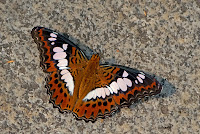 |
| Doi Suthep-Pui National Park, Chiang Mai, Thailand |
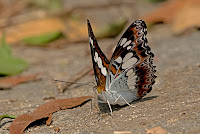 |
| Doi Suthep-Pui National Park, Chiang Mai, Thailand |
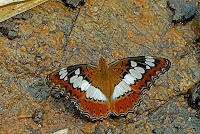 |
| Doi Suthep-Pui National Park, Chiang Mai, Thailand |
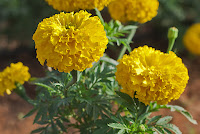 |
| Tagetes erecta, a favourite nectar source |
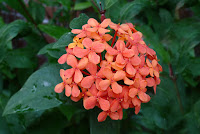 |
| Ixora javanica, another nectar source |
 |
| Doi Suthep-Pui National Park, Chiang Mai, Thailand |
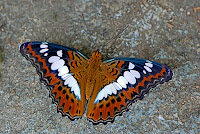 |
| Doi Suthep-Pui National Park, Chiang Mai, Thailand |
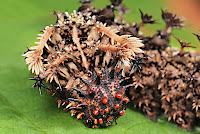 |
| bizzare head section of a late instar larva |
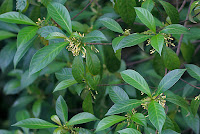 |
| Timonius wallichianus, a larval host |
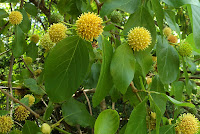 |
| Mitragyna parvifolia, another larval host |
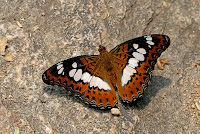 |
| Doi Suthep-Pui National Park, Chiang Mai, Thailand |
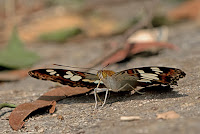 |
| Doi Suthep-Pui National Park, Chiang Mai, Thailand |
 |
| pupa a few days before eclosure |
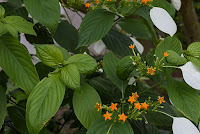 |
| Mussaenda frondosa, a larval host |
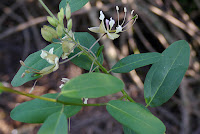 |
| Cadaba fruticosa, another larval host |
Links to other pages in this series for species in the same subfamily
Athyma perius
Auzakia danava
Euthalia alpheda
Euthalia lubentina
Lasippa viraja
Limenitis asura
Neptis cartica
Neptis miah
Pantoporia hordonia
Sumalia daraxa
Athyma pravara
Bhagadatta austenia
Euthalia anosia
Euthalia monina
Lebadea martha
Limenitis dudu
Neptis clinia
Neptis nashona
Pantoporia paraka
Sumalia zulema
Athyma ranga
Cynitia cocytus
Euthalia evelina
Euthalia patala
Lexias dirtea
Moduza procris
Neptis hylas
Neptis nata
Parthenos sylvia
Tanaecia jahnu
Athyma selenophora
Euthalia aconthea
Euthalia franciae
Euthalia phemius
Lexias pardalis
Neptis ananta
Neptis magadha
Neptis soma
Phaedyma columella
Tanaecia julii
